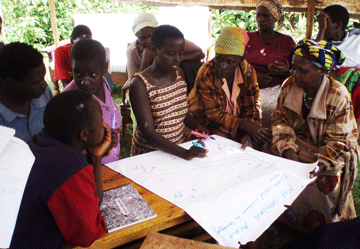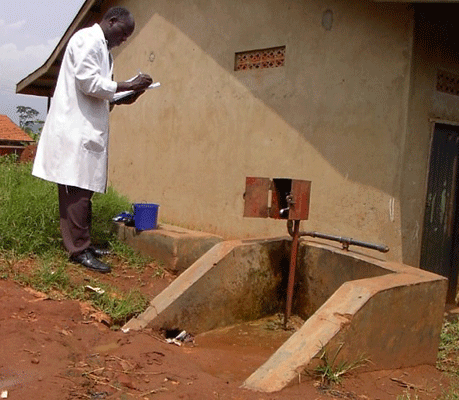Article by Laina Schneider and Wangui Gichane
In Uganda, the rapid increase in production of crops like coffee and maize is creating heightened demand for professionals all along the agricultural value chain. To meet this demand, Makerere University’s Department of Agribusiness and Natural Resource Economics has been tasked with providing appropriate courses to ensure that graduates develop strong economic and analytical skills so that they can fill these roles. However, some of the programs are falling short.
To better understand the issues within the programs, Keith Moore, director of Monitoring and Evaluation at the Office of International Research, Education and Development at Virginia Tech, led an InnovATE scoping assessment to identify opportunities where improving agricultural programs can better prepare graduates for the workforce.
The assessment brought together experts from technical and pedagogical disciplines. “It was the first time that an InnovATE assessment team was composed of people from different disciplines and areas—not strictly faculty,” Moore stated, “that was part of the reason we had such a successful trip.”
With the goal of identifying opportunities to improve departmental programs and address the challenges preventing graduates from landing jobs in the agricultural sector, the team conducted interviews with students, faculty and administration. The team also met with private sector stakeholders to gauge their needs.
The team discovered that a critical challenge is that most graduates leave with strong theoretical knowledge of agribusiness, but lack in-the-field problem solving skills, financial literacy, or professional writing skills.
To address these concerns, the assessment team recommended a three-step strategy. First, recruit an internship coordinator to strengthen linkages between agribusiness stakeholders and faculty and students. This would ensure problem-solving skill development and industry experience for graduates, as well as an increase in the number of qualified candidates for potential employers.
The second step is to update courses to match what skills students are expected to have after graduating. To accomplish this, the team recommended conducting studies of post-graduate student placement to better understand where students work after graduation. Learning the initial placement of students in the job market would enable faculty to tailor course material to marketable skills.
The final recommendation was to introduce more active learning and teaching techniques in the classroom to enhance student engagement and development of entrepreneurial and interpersonal skills. Using these strategies and improvements, Makerere faculty hope to better equip graduates for careers in agricultural value chains throughout Uganda.
“One of the things that made this trip memorable was how the Makerere faculty embraced our initial findings,” said Moore. “Everyone was enthusiastic and responded well to the assessment.”



